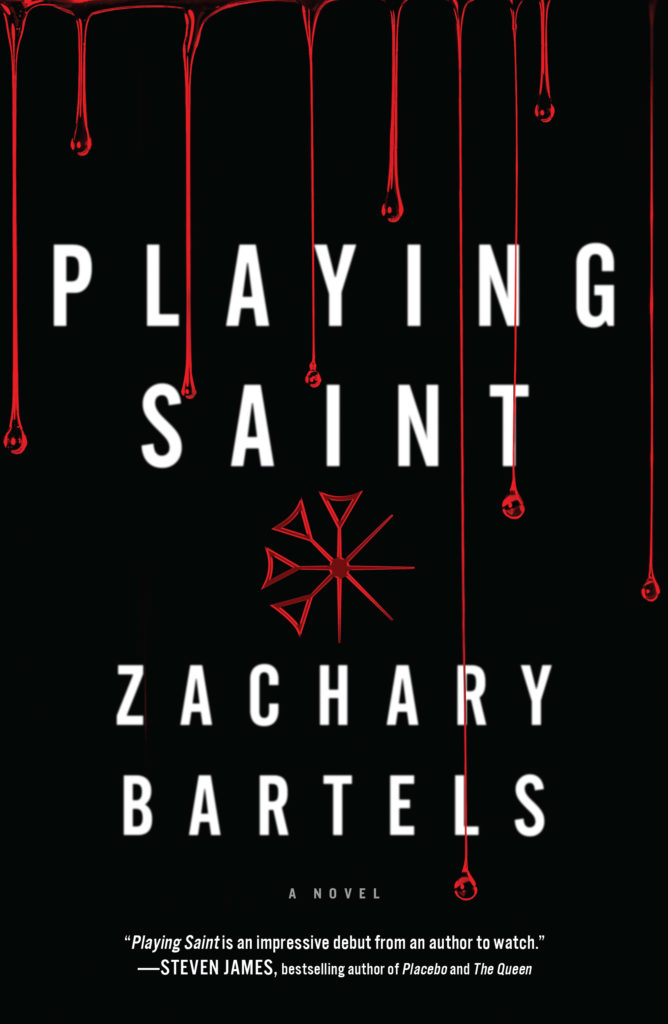‘Playing Saint’ Is Promising Only In Places
I wouldn’t consider this book a letdown, but mostly because it never got my hopes up very high.1
There is some promising stuff here. The little touches of humor worked well, the characters didn’t feel like tired old cliches dragged out of cop shows and horror films, and it got somewhat more interesting as it went on. Unfortunately, that was not near enough to make it good.
The first problem is the main character, Parker Saint. The side allusions to his televised ministry, his expressed desire to “save Jesus” from the über-conservatives, and the “destiny” drinking game suggest that we’re supposed to find him shallow, absorbed with fame, and theologically questionable, but that’s all the evidence we’re given. I’m not sure someone outside of evangelical Christianity would get why we’re supposed to consider Parker’s ministry bad.2
I give Bartels kudos for making his militant Jesuits interesting and believable, at least within the context of the book, but he never used them to their full potential. Honestly, considering how he ended their storyline, I’m confused as to why he included them at all.
His female characters felt pretty well-developed, but almost immediately after an important plot point, I was thinking about women in refrigerators. Was there any point to in what happened to her besides giving Parker angst? Why did the other female character more or less drop out of the story halfway through? Actually, that applies to almost all of the side characters — the really interesting ones drop out partway through the story.
Entering spoilery territory — I won’t give much away, but I’ll definitely hint at it.
There was a bit of mystery and surprise with the identity of the “Blackjack killer.” But honestly I’m not convinced that the bad guy could really have been as convincing as he was. If we’re going with a form of demon possession based more on Biblical record, demoniacs didn’t exactly blend in with the rest of the populace. And while I’m no expert on the aspirations of demons who possess people, I find his motivation and methods both puzzling and unconvincing.
The worst part was the ending. The “climactic” final battle between “good” and “evil” was about as dramatic as watching paint dry, and took about as long. Nothing about it was convincing. The villain was not believable or a threat, and the hero’s change was as superficial as his perceived flaws. And while I appreciate that the demon-possessed bad guy didn’t act like someone in a cheap horror film, if your final battle is going to be resolved with strategy and guns, why are you including demons in the first place?
The epilogue was a bloated bit of telling that was probably largely unnecessary. I can’t say for sure, as by that point I was skimming just to get to the end of the book.
Playing Saint avoids many of the problems Christian fiction is accused of having, such as the cheesy conversion scene or an abundance of cliched characters. Unfortunately, in my opinion they were not replaced with substance or quality.
- This review was originally published at Amazon.com and is resubmitted to SpecFaith by the author. ↩
- Spoiler: His return to a deeper faith is as flat and meaningless as it is predictable. ↩




































